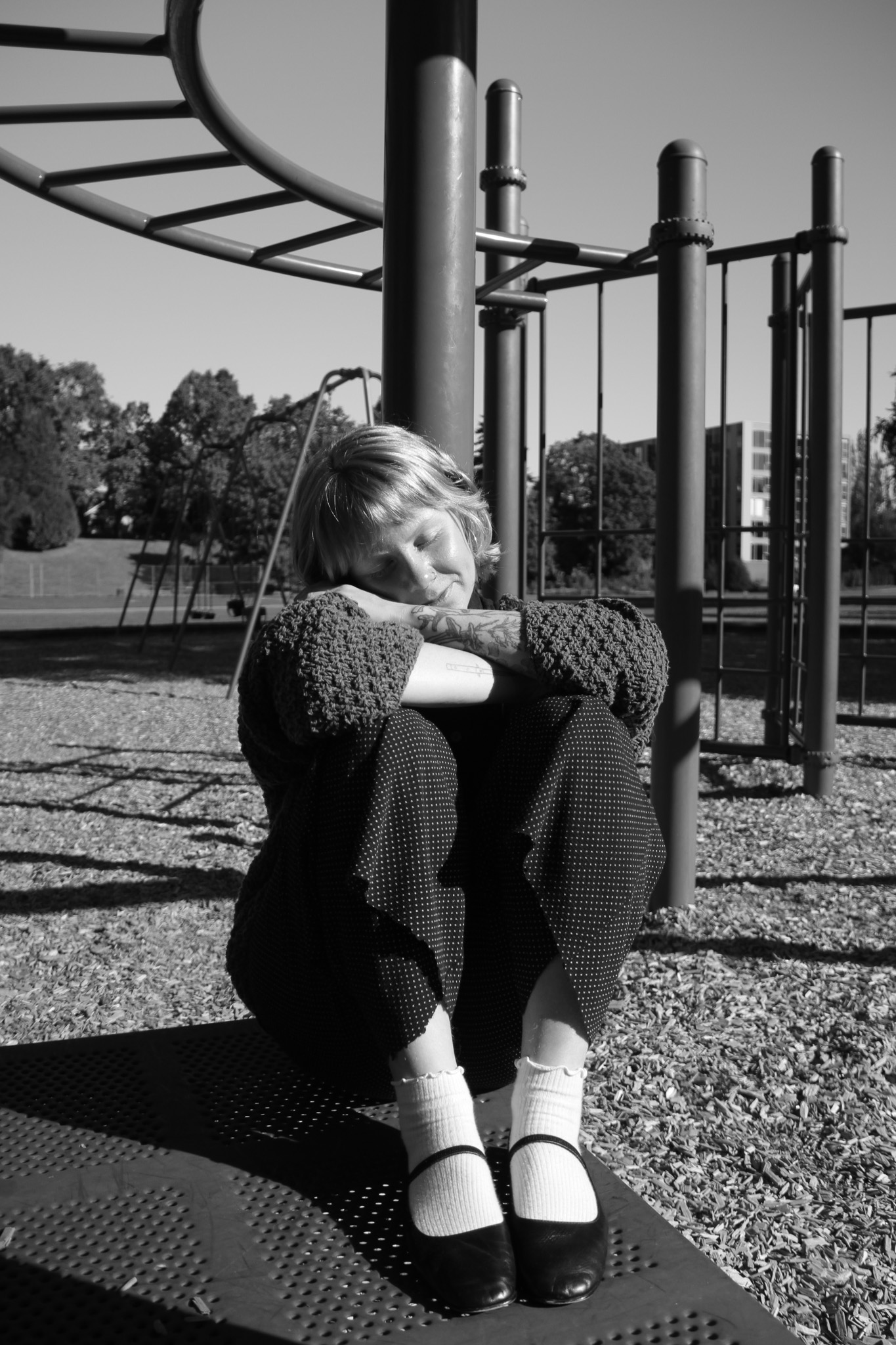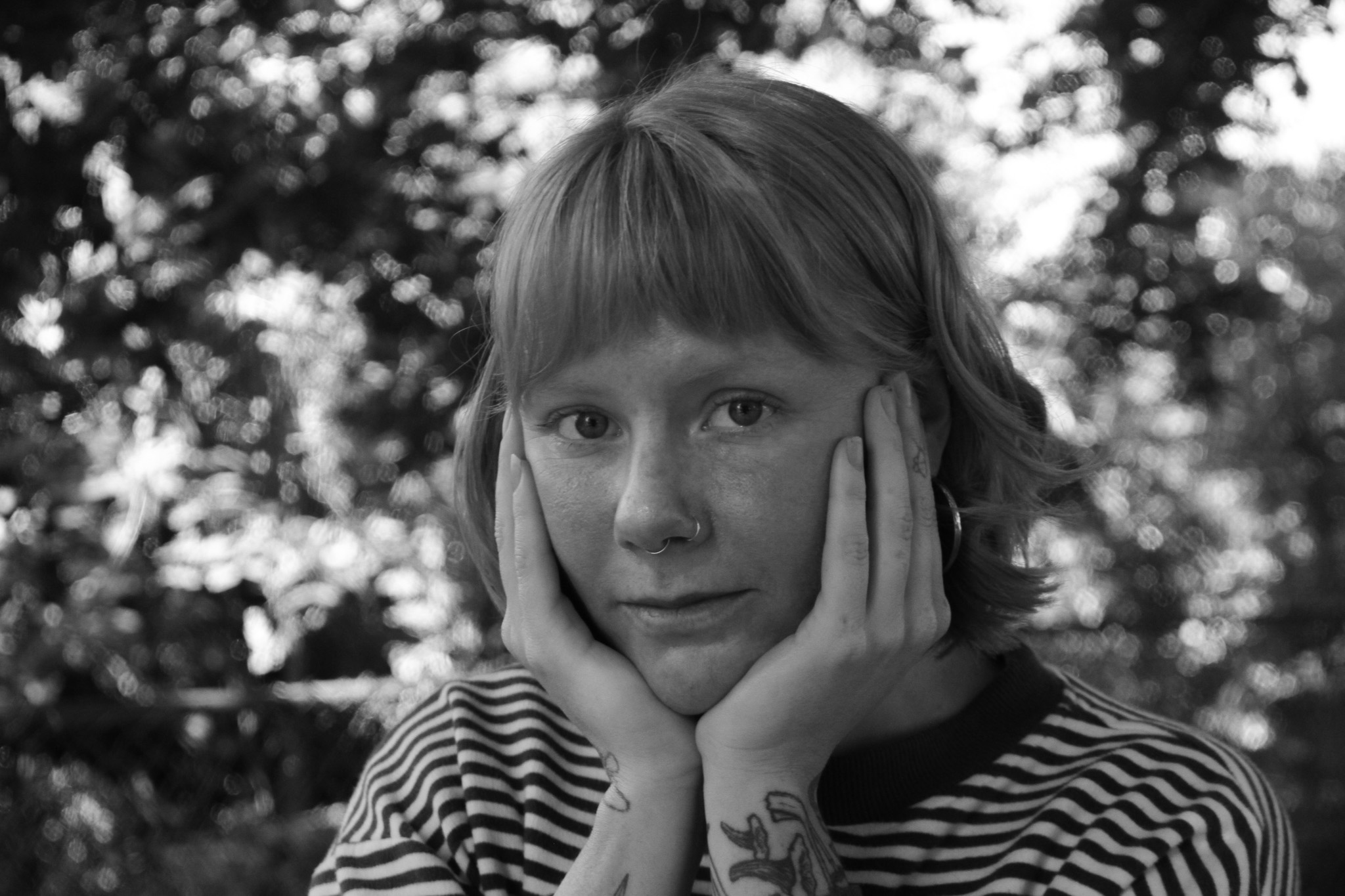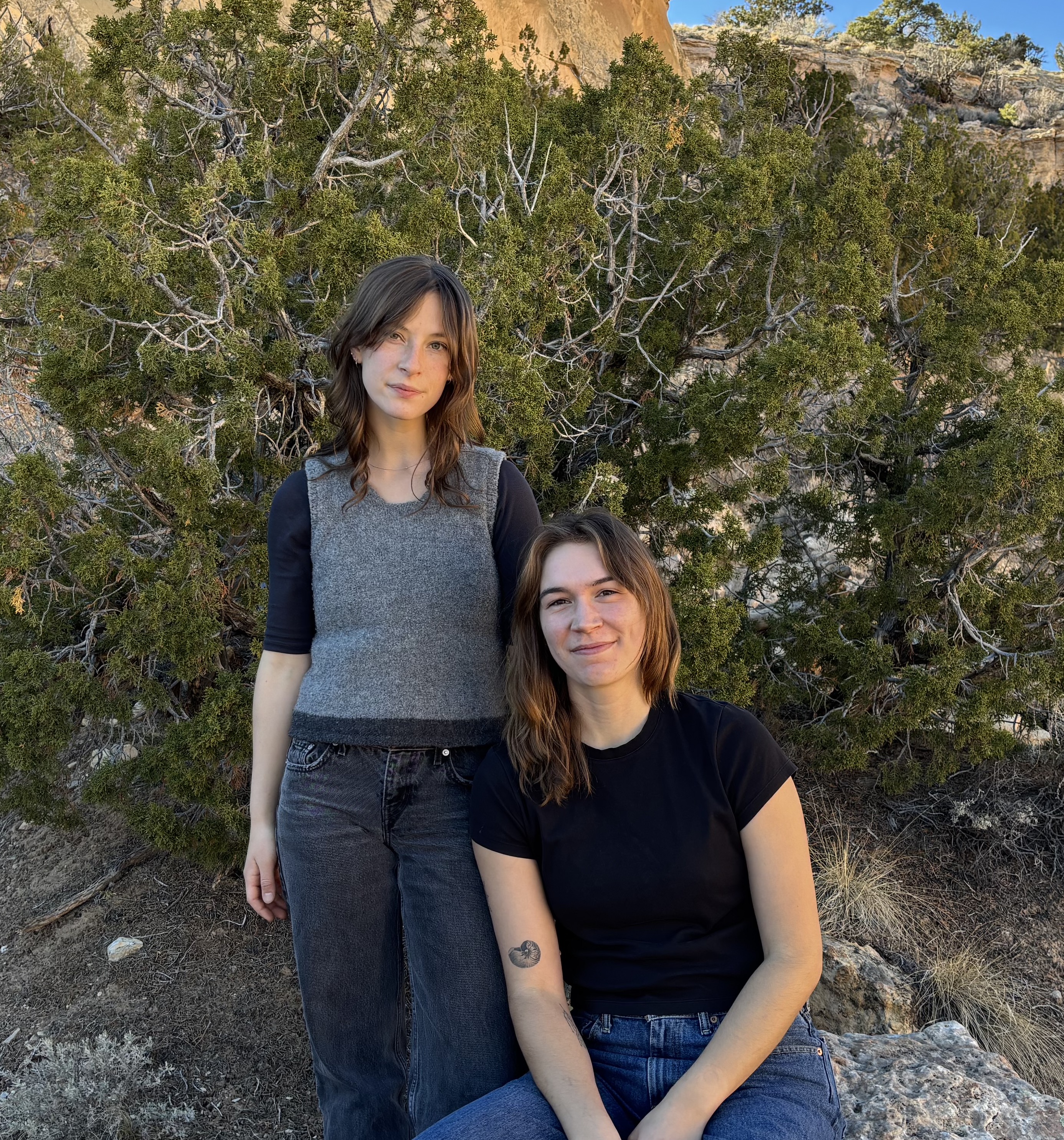Mary Eliza grew up playing music for strangers. Busking on city sidewalks throughout her childhood in California, she learned to play for a moving audience, turning intimate songs into public offerings. On Spider, her debut album recorded at Trace Horse Studios and released in January 2025, that instinct infuses a set of songs that trace the fault lines of love, change, and chronic illness.
We spoke with the Portland-based artist about creative collaboration, finding rest in the chaos of an album release, and being a listener.
***
Olivia Q. Pintair: I’m curious how you approach songwriting. Is there a pattern to your creative process?
Mary Eliza: I would say that songwriting is rarely, if ever, a planned process for me. I start with the feeling. I always start with the feeling. It's usually something pretty big that I'm feeling, and then I'll just sit with that, and allow that feeling to get big and take some form or color. I try to let the emotion surround me until I’m just a small thing inside of it. Then, I simultaneously choose guitar and lyrics that feel true to what I’m experiencing. The process feels both spontaneous and necessary——a kind of upkeep that I do for myself, kind of like journaling regularly. It happens most days for me, unless I haven’t yet reached the processing phase of what I am experiencing yet. It's something I can feel building up inside of me, like an itch that needs to be scratched, and I realize, oh, I just need to write and sit with what I'm feeling and create music.
Maia Sauer: You’ve been hard at work, with your recent album, Spider, released in January. Putting out an album requires an immense amount of effort and compromise, and I could imagine it being particularly challenging to balance your vulnerability in these songs with the hard-edged logistics of producing and promoting your career. I’d love to hear more about what this kind of work feels like for you. How do you find moments of rest within your creative life? What does rest feel like?
ME: I think that rest is always music for me. I love listening to music. That’s kind of always been a primary state of calm for me. I think that taking a break from myself as a creator and sitting back and really taking in what other people are creating is a really fulfilling, inspiring, and restful state that I engage in every day. A recent artist who I really love and admire is Mali Velasquez. When I’m not discovering new artists, I love to do deep dives into the discography of artists who I already listen to frequently. I feel like I learn a lot that way! I knew going into the process of this record release that a lot of my energy was going to be allotted to that, and I tried to organize my life beforehand so that I was able to make sure that I would have spaces and time to find rest and nourish my creative flame. Like a week or whatever. Just a pocket to relax and ease into being a listener again.
OQP: There are lyrics in your song, “Porcelain,” that go: “Will you love me until I’m young,/ will you love me until I’m old?/ Will you love me into somebody I don’t know?” I love the way that line spotlights a relationship between love and change. That’s something Maia and I have talked about in the context of lullabies——the idea that by singing a lullaby, you might be helping someone pass over this threshold into sleep and dream, which can be a potentially transformative place. I’d love to hear about what inspired that lyric and how you parse the relationship between love and change in your own life.
ME: I think that's really interesting. Lullabies do play a very special role in the musical world. So that's really cool. I’m just kind of taking that in with my early morning brain.
But yes. I love the way that you read and heard those lyrics in “Porcelain.” I wrote them when I was dating somebody. I was just kind of sitting back and curious about what the future was holding. I wrote those lyrics from that place of interest——not from any hurt or pain, but of gentle curiosity of what that relationship might look like in the future. Every morning I take some time to ruminate on the existence of death, and the fleeting reality that is life. Because of this, I feel that I am, overall, more open to both love, and change, because each day is truly a gift of an opportunity to experience what it is like to be human.

MS: I read that you spent years busking around California. Busking can be such a powerful way to counter the supposed separateness of public spaces——a kind of invitation to sonically connect for a brief moment on our different trajectories. How has playing for strangers and passersby shifted your relationship with audience and listeners?
ME: Busking in Oakland and San Francisco growing up was very formative. It does get rid of this feeling of separateness, or the feeling that we're just walking around our little lives, seeing ourselves as completely separate and not interacting with one another. It made me look at the world differently from a young age——I was just completely vulnerable, like physically and emotionally, sitting on a curb, playing violin (which was my first instrument) and meeting a lot of really interesting people. Busking has put me in some pretty scary scenarios too, which I think really helped me grow thick skin, musically. At the end of the day, it truly didn't matter what other people thought, because I really, really loved playing music. I strive to approach performing my music from a heart-place. I want to perform from a place that's fulfilling for myself and my soul, as opposed to playing only for other people, which can quickly feel incredibly draining. I’ve done that before. I think my impulse to ask myself where my music is coming from internally came from busking, and the need to protect my energy.
OQP: Did you listen to lullabies growing up? Any favorites?
ME: It felt like there was music playing 24/7 in my childhood home. Specifically at night before bed, we listened to what I called the “blue album.” I don't think that's an accurate name for it. It’s Ella Fitzgerald and Louis Armstrong. I remember it was a no-skips album for me. The song “Dream a Little Dream of Me” will forever have a soft spot in my heart. My grandma would also play that same record a lot. My older brother and I lived with her for a while while my parents were away, adopting my younger brother from Siberia. The sweet lilting melodies of those tunes can put me at ease in any situation. They feel very much like home to me.
MS: Can you tell us a bit more about the lullaby you’re sharing with Lullaby Machine?
ME: Yeah, the lullaby I shared is called “Everything in Sight.” It's one voice memo out of hundreds, but it kind of just popped out at me as I was thinking about sharing a lullaby. My friend and I are planning on trying our hand at claymation and we thought that song would be great for what we want to make. So the song has been on my mind because of that project, which in itself is a calm place in my brain right now. So when you brought up lullaby, I thought, oh, that would be a good one. I write a song most days of the week. It was a goal of mine for several years, to write one song a day. I’ve stuck with it for the most part, and writing that many songs helps me to distinguish which ones mean the most to me, and feel the most potent. "Everything in Sight" was a potent one for me, and it makes me smile every time I play it.
MS: I’m also curious to hear you talk a little bit about if and how your creative process interacts with friends or with other collaborators.
ME: I think with songwriting, I generally stem from a very solo, intimate, personal space, which is something I approach with gentle self-curiosity. It would be cool to collaborate with other songwriters. I've done it a couple times. It's not the most natural state for me to be in, but it is something that I aspire to work towards and try my hand at a bit more. But in terms of everything else, there is so much overlap, like with film and video and musicians who like to play things in the background, and now this claymation idea. So much overlap. My community here where I live is home to a lot of creatives, and we always seem to find a way to mesh together what we love doing.
OQP: Would you say there’s a specific intention or hope that you carry with you as you make music and perform for people?
ME: I like to put out music publicly because it has been such a formative thing for me when other people are just completely honest and emotionally vulnerable. I think that the world needs more honest, intimate connection. I would say that’s the primary intention for everything I do, musically——just being honest with myself and, by extension, the world around me. I think that's a positive way to make small change.



